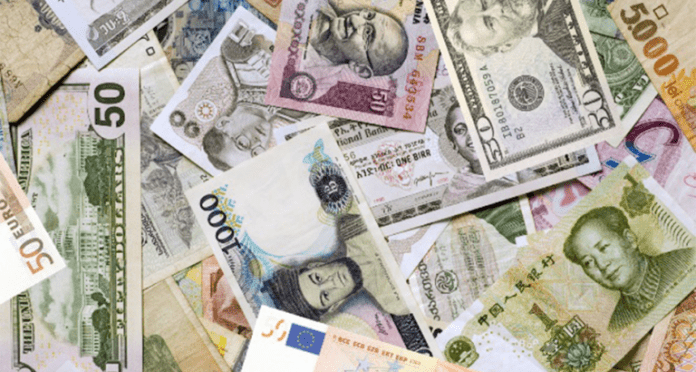Most Asian currencies retreated on Wednesday, while the dollar firmed slightly as uncertainty over rising U.S. interest rates battered risk-heavy assets, with focus now turning to a slew of economic indicators due this week.
The Japanese yen fell 0.2%, coming under renewed pressure from the dollar this week as new Bank of Japan Governor Kazuo Ueda reiterated that the central bank will maintain its ultra-loose monetary policy.
Worsening local economic conditions also weighed on the yen, with focus turning to key nationwide inflation data due on Friday.
Optimism over a Chinese economic recovery offered little support to regional currencies, as stronger-than-expected first quarter GDP data also pointed to an uneven rebound. The country’s manufacturing sector, considered a bellwether for growth, was still struggling to recover from the COVID pandemic.
The Chinese yuan was flat on Wednesday. Focus this week is also on an interest rate decision by the People’s Bank of China on Thursday.
Risk-heavy Southeast Asian currencies also retreated, with the Thai baht down 0.3%, while the Singapore dollar lost 0.1%. The Malaysian ringgit was somewhat supported by data showing that the country’s trade balance grew more than expected in March.
Broader Asian currencies inched lower on Wednesday as uncertainty over the path of U.S. monetary policy kept traders wary. The dollar index and dollar index futures both rose slightly, also taking support from an overnight bounce in Treasury yields.
Fears of rising U.S. interest rates crept back into markets as several Fed officials called for more hikes. Fed Fund futures prices show that markets are pricing in an 85% chance that the Fed will hike by 25 basis points in May, as well as a 19% chance that the bank will hike again in June.
While the general consensus is still for a pause in June, Fed officials have also warned that interest rates may stay higher for longer, likely weighing on economic growth. The prospect of a U.S. economic slowdown, coupled with elevated interest rates, has weighed heavily on Asian currencies this year.
Among other movers on Wednesday, the Australian dollar rose slightly as a Bloomberg survey showed that analysts saw a lower probability of a recession, after the Reserve Bank paused its interest rate hikes.
But the RBA still signaled that more rate hikes may be in order, especially if inflation remains stubborn.









